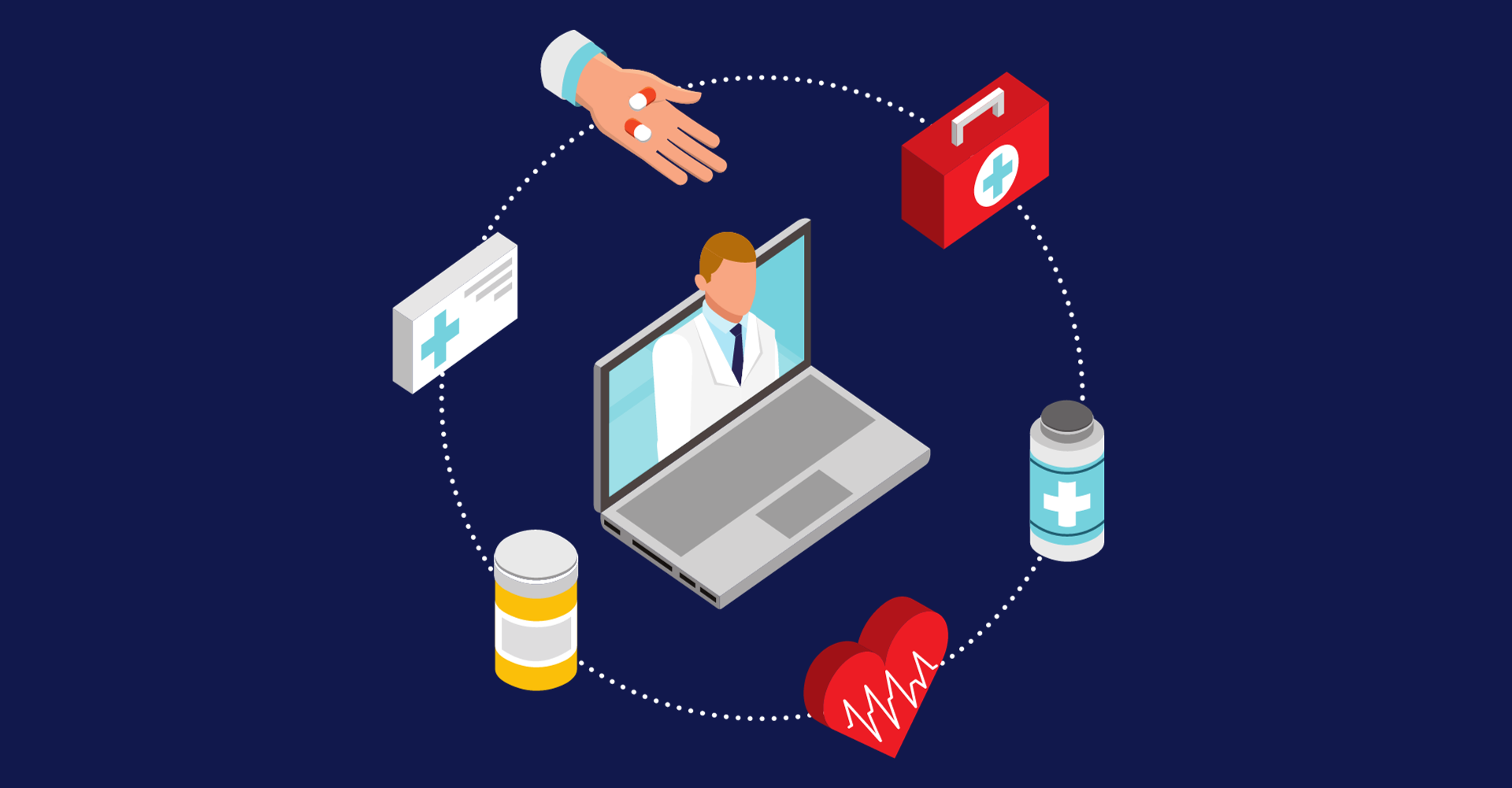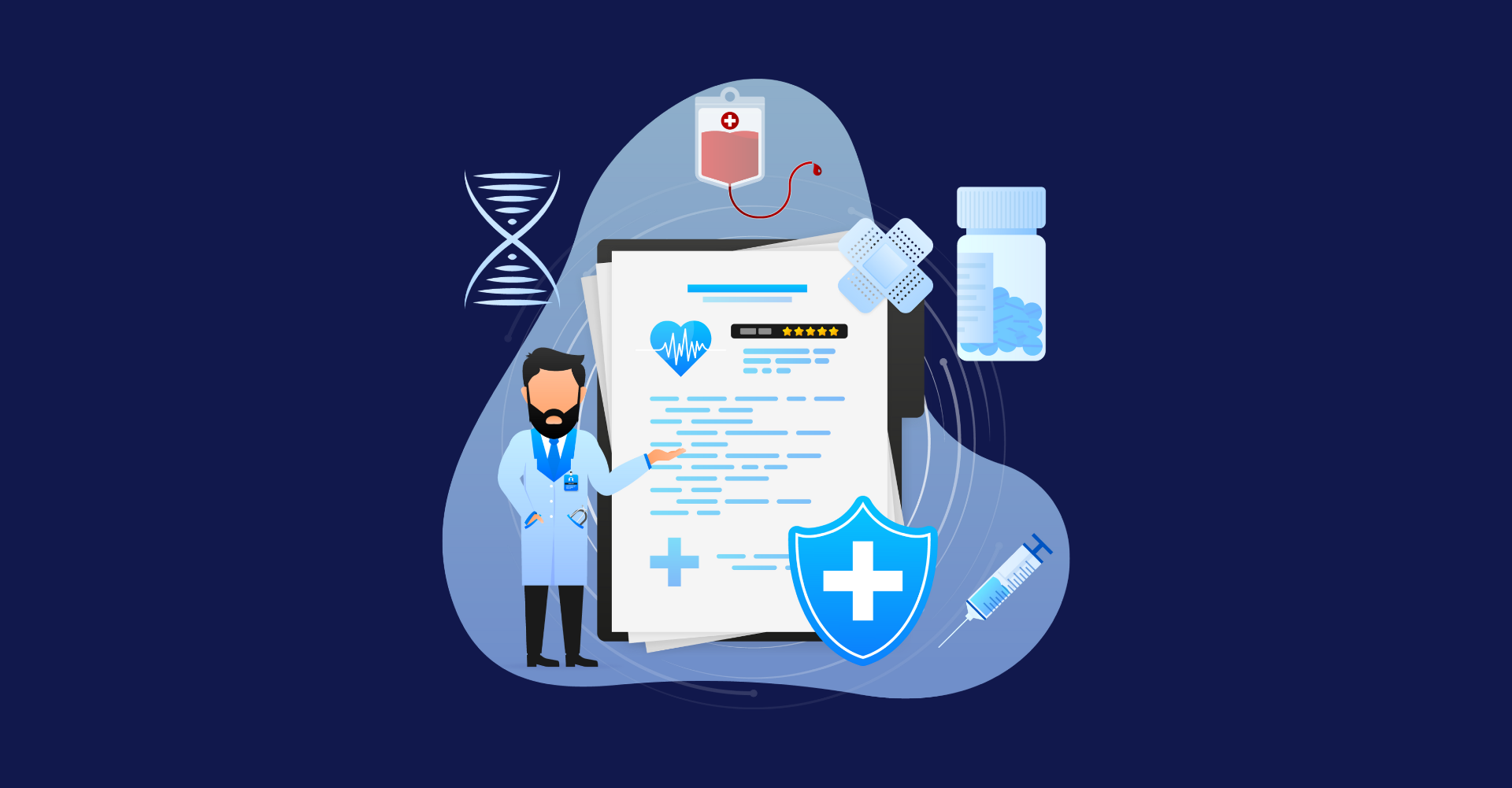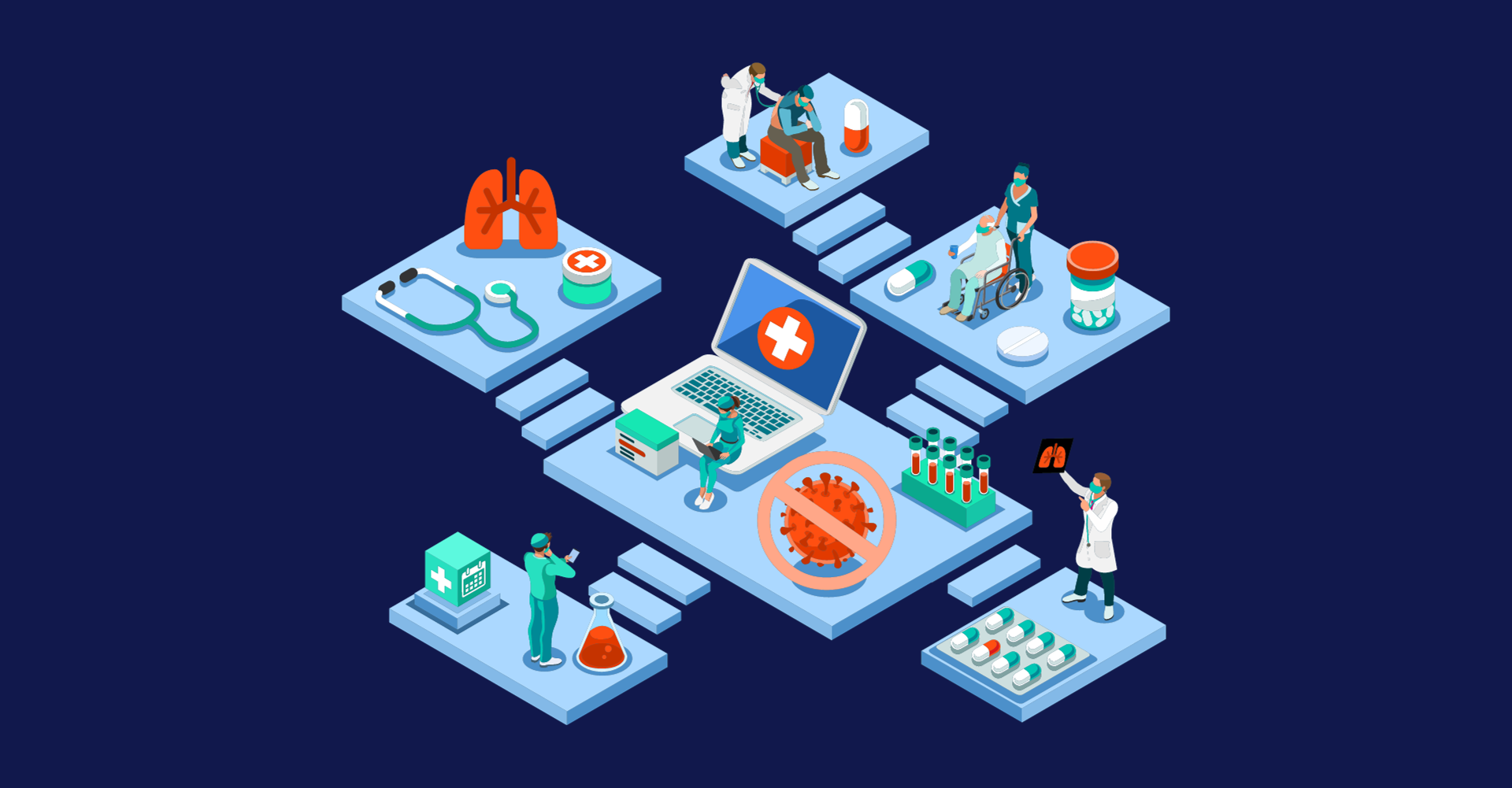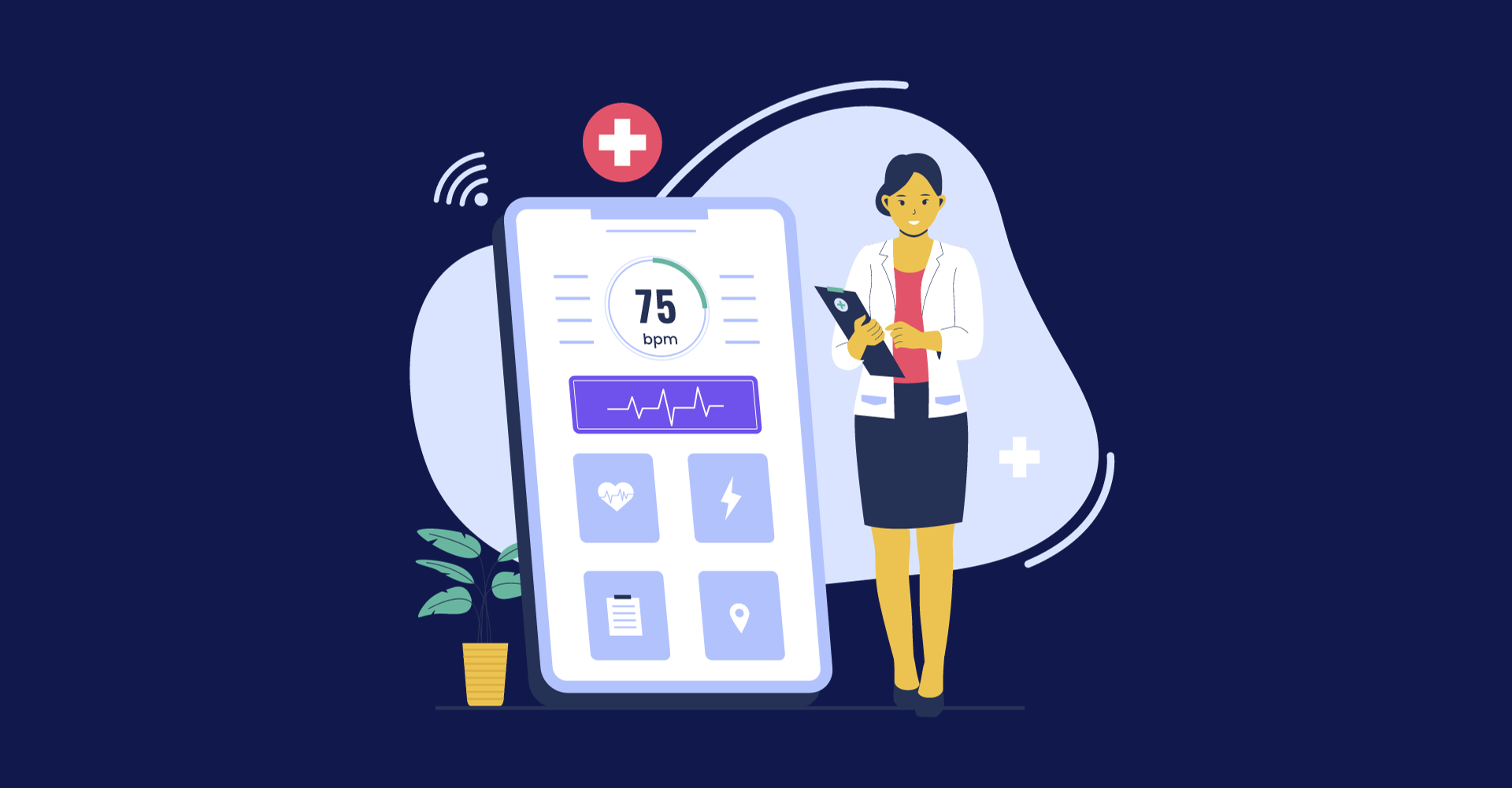The healthcare industry is facing unprecedented challenges in the 21st century. The growing demand for quality care, the rising costs of healthcare services, the shortage of skilled professionals, the complexity of regulatory compliance, and the rapid pace of technological innovation are some of the factors that are putting immense pressure on healthcare providers and organizations.
One of the ways to overcome these challenges and improve the efficiency and effectiveness of healthcare delivery is to leverage the power of custom software solutions. Custom software solutions are tailor-made applications that are designed and developed to meet the specific needs and requirements of a particular healthcare organization or professional. Unlike off-the-shelf software products that are generic and often incompatible with existing systems and processes, custom software solutions are flexible and adaptable to the unique workflows, preferences, and goals of each healthcare entity.
The Challeges the Healthcare Industry Faces as a Whole
The healthcare industry is undergoing a rapid digital transformation, as healthcare institutions embrace new technologies to improve patient care, increase efficiency, and reduce costs. However, this digitalization also brings with it a number of challenges that healthcare institutions must address to ensure the success of their digital initiatives.
1. General Digitalization Challenges

Data Interoperability: Ensuring that data can be seamlessly shared between different systems and providers is critical for delivering coordinated and efficient care. However, legacy systems, proprietary formats, and privacy concerns often make data interoperability a challenge
Cybersecurity: With the increasing reliance on electronic health records and other sensitive patient data, cybersecurity is a top priority for healthcare institutions. They must implement robust security measures to protect against data breaches and cyberattacks.
Digital Literacy and Training: Healthcare professionals need to be adequately trained on new digital technologies to effectively utilize them in their practice. This requires ongoing training and education programs to keep pace with the rapid advancement of technology.
Cost and Implementation: Implementing new digital technologies can be costly, especially for smaller healthcare institutions. Additionally, the integration of these technologies into existing workflows and processes can be complex and time-consuming.
2. Health Insurance Challenges

Complex Reimbursement Processes: Health insurance claims are complex and subject to numerous regulations and coding requirements. This can make it difficult for healthcare providers to correctly code and submit claims, leading to delays and denials.
Lack of Transparency: The healthcare industry is often criticized for its lack of transparency, particularly in the realm of health insurance. Patients often struggle to understand their coverage and out-of-pocket costs, leading to confusion and frustration.
Fraud and Abuse: Healthcare fraud and abuse are significant challenges for the industry, costing billions of dollars each year. Healthcare institutions and insurers must work together to identify and prevent fraudulent activities.
3. Claims Settlement Challenges

Manual Processing: Many healthcare claims are still processed manually, which is inefficient and prone to errors. This can lead to delays in reimbursements for healthcare providers and frustration for patients.
Data Accuracy Issues: Inaccurate or incomplete data in claims can lead to denials or delays in reimbursement. Healthcare providers need to ensure that their claims data is accurate and up-to-date.
Denial Management: Healthcare providers often face challenges with claim denials, which can be time-consuming and costly to appeal. Effective denial management processes are crucial for optimizing revenue collections.
4. Compliance Challenges

Regulatory Changes: The healthcare industry is constantly evolving, with new regulations and standards being introduced regularly. Healthcare institutions must stay up-to-date on these changes to ensure compliance.
Audits and Investigations: Healthcare institutions are subject to regular audits and investigations by government agencies and private payers. They must maintain accurate and complete documentation to demonstrate compliance.
Data Privacy and Security: Healthcare institutions must comply with strict data privacy and security regulations, such as HIPAA, to protect patient information.
Addressing these digitalization challenges is crucial for healthcare institutions to successfully implement new technologies, improve patient care, and ensure financial sustainability. By adopting a strategic approach to digital transformation, healthcare institutions can overcome these challenges and reap the full benefits of digitalization.
Navigating the Digital Crossroads: How Custom Software Can Empower Healthcare Providers

The healthcare industry stands at a pivotal moment, embracing digital transformation while grappling with a myriad of challenges. Amidst this dynamic landscape, custom software solutions emerge as a beacon of hope, offering healthcare providers the tools they need to navigate the complexities of the digital age and deliver exceptional patient care.
Addressing Data Interoperability Hurdles
Data interoperability, the seamless exchange of information between disparate systems, is a cornerstone of coordinated care. However, legacy systems, proprietary formats, and privacy concerns often hinder this vital exchange. Custom software solutions can bridge these gaps by establishing a unified data platform that integrates seamlessly with existing systems, enabling the secure and efficient flow of patient data. This holistic view of patient information empowers healthcare providers to make informed decisions, improve treatment outcomes, and enhance patient satisfaction.
Fortifying Cybersecurity Defenses
With the increasing reliance on electronic health records (EHRs) and other sensitive patient data, cybersecurity has become a paramount concern for healthcare institutions. Custom software solutions can bolster cybersecurity by incorporating robust security measures, including encryption, access controls, and intrusion detection systems. These safeguards protect sensitive patient information from unauthorized access, data breaches, and cyberattacks, ensuring compliance with stringent data privacy regulations.
Bridging the Digital Literacy Divide
Healthcare professionals must be adequately equipped to embrace new digital technologies effectively. Custom software solutions can address the digital literacy gap by providing comprehensive training programs and ongoing support. These educational initiatives empower healthcare providers to utilize new technologies confidently, fostering a culture of innovation and continuous improvement within the healthcare organization.
Overcoming Cost and Implementation Barriers
Implementing new digital technologies can be costly and time-consuming, particularly for smaller healthcare institutions. Custom software solutions can mitigate these challenges by adopting a cost-effective and agile development approach. This tailored approach prioritizes the most critical needs of the healthcare organization, ensuring a smooth integration of new technologies into existing workflows and processes, maximizing the return on investment.
Streamlining Complex Reimbursement Processes
Health insurance claims are notoriously complex, subject to a labyrinth of regulations and coding requirements. Custom software solutions can simplify this process by automating claim submission, reducing manual errors, and ensuring compliance with industry standards. This automation streamlines the reimbursement process, expediting payments to healthcare providers and minimizing administrative burdens.
Promoting Transparency in Healthcare
The healthcare industry often faces criticism for its lack of transparency, particularly in the realm of health insurance. Custom software solutions can address this issue by providing patients with clear and accessible information about their coverage, out-of-pocket costs, and treatment options. This transparency fosters trust between patients and healthcare providers, leading to better informed decisions and improved patient outcomes.
Combating Healthcare Fraud and Abuse
Healthcare fraud and abuse pose a significant threat to the industry, costing billions of dollars annually. Custom software solutions can combat these fraudulent activities by incorporating sophisticated algorithms and data analytics tools. These tools detect anomalies and patterns indicative of fraud, enabling healthcare institutions to take proactive measures to prevent losses and protect patient interests.
Automating Manual Claims Processing
Manual claims processing is inefficient, prone to errors, and a major source of delays in reimbursement. Custom software solutions can automate this process, eliminating manual data entry and ensuring accuracy. This automation streamlines the claims settlement process, expediting payments to healthcare providers and reducing administrative costs.
Ensuring Data Accuracy and Completeness
Inaccurate or incomplete data in claims can lead to denials or delays in reimbursement. Custom software solutions can address this challenge by implementing rigorous data validation checks and ensuring the completeness of claims information. This data integrity ensures that claims are processed accurately and efficiently, minimizing the risk of denials and optimizing revenue collections.
Optimizing Denial Management
Claim denials can be a significant financial burden for healthcare providers. Custom software solutions can optimize denial management by providing real-time claim status updates, detailed denial explanations, and automated appeals processes. This proactive approach expedites claim resolution, minimizes revenue losses, and enhances the financial performance of healthcare institutions.
Staying Ahead of Regulatory Changes
The healthcare industry is constantly evolving, with new regulations and standards being introduced regularly. Custom software solutions can help healthcare institutions stay compliant by incorporating updates as they occur. This proactive approach ensures that healthcare organizations remain in compliance with the latest regulations, avoiding penalties and maintaining a positive reputation.
Demystifying Audits and Investigations
Healthcare institutions are subject to regular audits and investigations. Custom software solutions can facilitate this process by providing auditable data trails, comprehensive documentation, and real-time access to relevant information. This transparency fosters trust with regulatory bodies and minimizes the risk of non-compliance issues.
Protecting Patient Data with Unwavering Vigilance
Healthcare institutions must adhere to strict data privacy and security regulations, such as HIPAA, to protect patient information. Custom software solutions can ensure compliance by incorporating robust data encryption, access controls, and secure data storage practices. This vigilance safeguards patient privacy and builds trust with the patient community.
Empowering Healthcare Professionals: The Benefits of Custom Software Solutions

Custom software solutions offer a multitude of benefits for healthcare professionals, transforming their daily work lives and enabling them to deliver exceptional patient care. These benefits include:
Enhanced Workflow Efficiency: Custom software solutions can automate repetitive tasks, streamline data entry, and integrate disparate systems, eliminating unnecessary steps and reducing administrative burdens. This streamlined approach frees up valuable time for healthcare professionals, allowing them to focus on direct patient care and critical decision-making.
Improved Productivity: By automating tasks and reducing manual errors, custom software solutions can significantly enhance productivity. Healthcare professionals can spend less time on administrative tasks and more time engaging with patients, providing comprehensive care, and making informed decisions.
Reduced Errors and Miscommunication: Custom software solutions can minimize the risk of human error by automating tasks and providing real-time data validation checks. This accuracy reduces medication errors, improves patient safety, and streamlines communication between healthcare providers.
Access to Real-Time Patient Data: Custom software solutions can provide healthcare professionals with real-time access to patient data, including medical history, test results, and treatment plans. This comprehensive view of patient information empowers them to make informed decisions, personalize care, and improve patient outcomes.
Enhanced Patient Engagement: Custom software solutions can facilitate patient engagement through secure portals, online appointment scheduling, and personalized communication tools. This empowers patients to take control of their health, access their records, and communicate effectively with their healthcare providers.
Data-Driven Insights for Personalized Care: Custom software solutions can collect and analyze patient data, providing healthcare professionals with valuable insights into patient behavior and treatment outcomes. These insights enable them to personalize care plans, tailor interventions, and improve patient satisfaction.
Improved Compliance and Reduced Risk: Custom software solutions can be designed to meet specific compliance requirements, reducing the administrative burden on healthcare professionals and ensuring adherence to regulatory standards. This compliance minimizes the risk of penalties and legal issues.
Streamlined Reimbursement Processes: Custom software solutions can automate claim submission, reduce manual errors, and ensure compliance with industry standards. This automation streamlines the reimbursement process, expediting payments to healthcare providers and minimizing administrative costs.
In essence, custom software solutions empower healthcare professionals by providing them with the tools they need to work more efficiently, effectively, and securely. These solutions streamline workflows, enhance productivity, reduce errors, improve communication, and ultimately, deliver better patient care. As the healthcare industry continues to evolve, custom software will play an increasingly crucial role in empowering healthcare professionals and shaping the future of healthcare delivery.
Partnering for Healthcare Success

In the face of these complex challenges, custom software development companies emerge as ideal solution partners for healthcare providers. By collaborating with experienced software developers who understand the nuances of the healthcare industry, healthcare institutions can harness the power of technology to overcome obstacles, improve patient care, and achieve their organizational goals.
Custom software development companies bring a wealth of expertise and resources to the table:
- Deep Understanding of Healthcare Needs: Custom software developers possess a thorough understanding of the unique challenges and requirements of healthcare providers. They can tailor software solutions to address specific needs and seamlessly integrate them into existing workflows.
- Technological Expertise: Custom software developers stay abreast of the latest technological advancements and can leverage these innovations to develop cutting-edge solutions that enhance efficiency, security, and patient engagement.
- Agile Development Methodology: Custom software developers employ agile development methodologies, ensuring continuous collaboration with healthcare providers throughout the development process. This approach ensures that the software meets evolving needs and delivers maximum value.
- Cost-Effective Solutions: Custom software developers work closely with healthcare institutions to understand their budgetary constraints and develop cost-effective solutions that optimize resource utilization and maximize return on investment.
- Ongoing Support and Maintenance: Custom software developers provide comprehensive ongoing support and maintenance to ensure that their solutions continue to meet the evolving needs of healthcare providers. They also provide training and support to healthcare professionals, empowering them to utilize the software effectively.
Wrapping it Up
By partnering with a trusted custom software development company like ours, healthcare institutions can transform their digital landscape, overcome the challenges of the modern healthcare environment, and deliver exceptional patient care.
Custom software solutions serve as powerful tools that empower healthcare professionals, streamline workflows, enhance patient engagement, and ultimately, improve patient outcomes.
As the healthcare industry continues to evolve, custom software development will play an increasingly pivotal role in shaping the future of healthcare delivery and our team at Deventure is here to handhold you through every phase of this journey.






